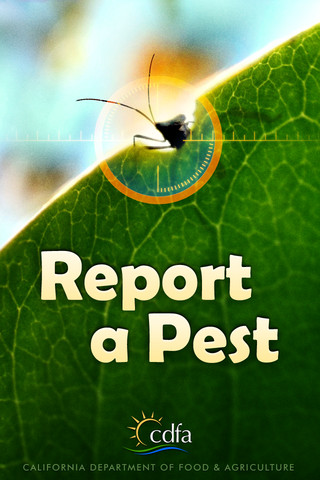Taken from a USDA news release
CDFA is joining the USDA in declaring April 2023 Invasive Plant Pest and Disease Awareness Month .
This national outreach month is dedicated to highlighting the impact of invasive plant pests and diseases on plants nationwide. The focus is on raising public awareness about the threat and how residents can help.
Each year, invasive insects and plant diseases cause an estimated $40 billion in damages to plants in the US.
Non-native plant pests can hitchhike in untreated firewood, attach themselves to cars, boats, and other outdoor surfaces—or take a ride in the mail. They can travel to new areas on agricultural material such as soil, seeds, homegrown produce, and plants.
Invasive pests have few or no natural predators in their new environments, so their populations quickly outpace native species and spread. These non-native plant pests and diseases disrupt our ecosystems and reduce biological diversity.
Climate change can magnify the impact of invasive species by increasing the level of plant pest infestations and disease infection, allowing pests to produce more generations each year, and increasing their suitable habitat.
To protect domestic plant health:
- Learn about possible quarantines in your area, as well as the signs of invasive pest infestation on plants.
- it’s important to clean your car and outdoor gear before traveling with them to new places, because invasive species can travel with you.
- If you find signs of new invasive plant pests and diseases in your area, report them to your local Extension office, CDFA’s Pest Hotline, or your USDA State Plant Health Director’s office.
- Don’t move untreated firewood—even if it looks pest-free on the outside. To avoid unintentionally spreading tree-killing beetles that hide in firewood, buy or source wood locally, or use certified, heat-treated firewood.
- Source your plants and seeds responsibly. When ordering online, ensure the plant is coming from a domestic source or follow import regulations. If you don’t know where an agricultural product is coming from, don’t buy it online. U.S. regulations apply to the importer of record—meaning the person purchasing and importing the product from overseas—not the online merchant. Learn how to safely and legally order plants and seeds online.
- Don’t mail homegrown plants, fruits and vegetables to avoid inadvertently mailing a plant pest with them.
- To comply with U.S. laws and avoid introducing new invasive species into the U.S., declare all agricultural items, including seeds, soil, and handicrafts to U.S. Customs and Border Protection for inspection when returning from overseas travel.
Link to CDFA’s Report a Pest Page
Link to the USDA’s Hungry Pests Page



